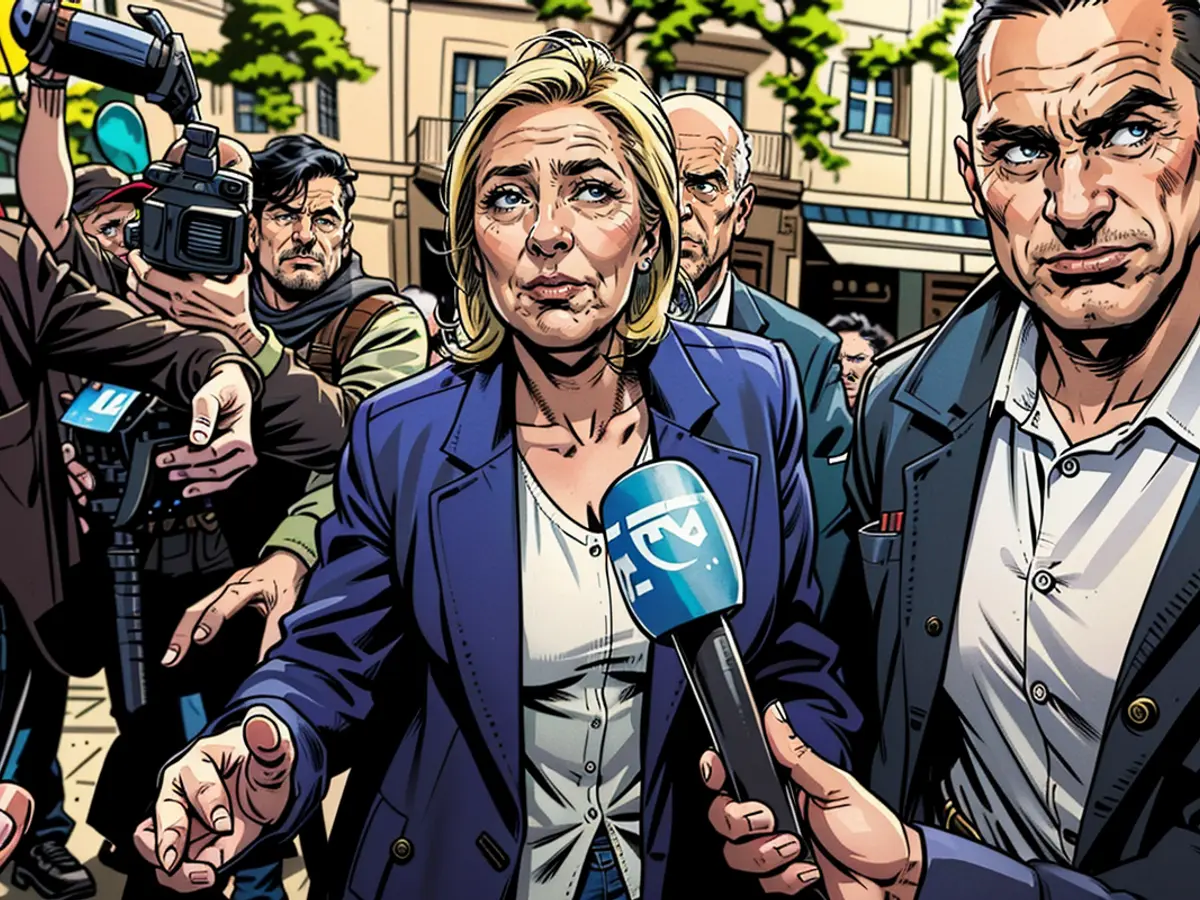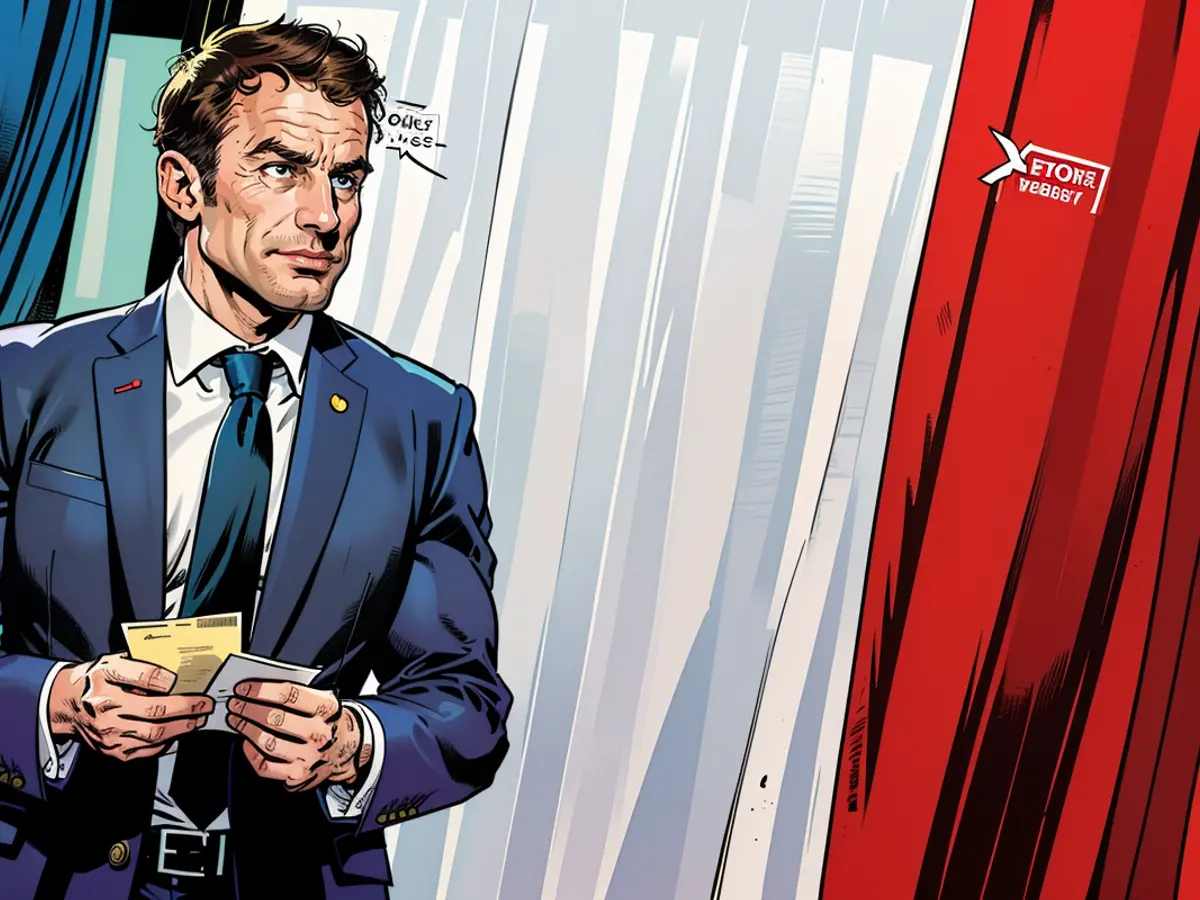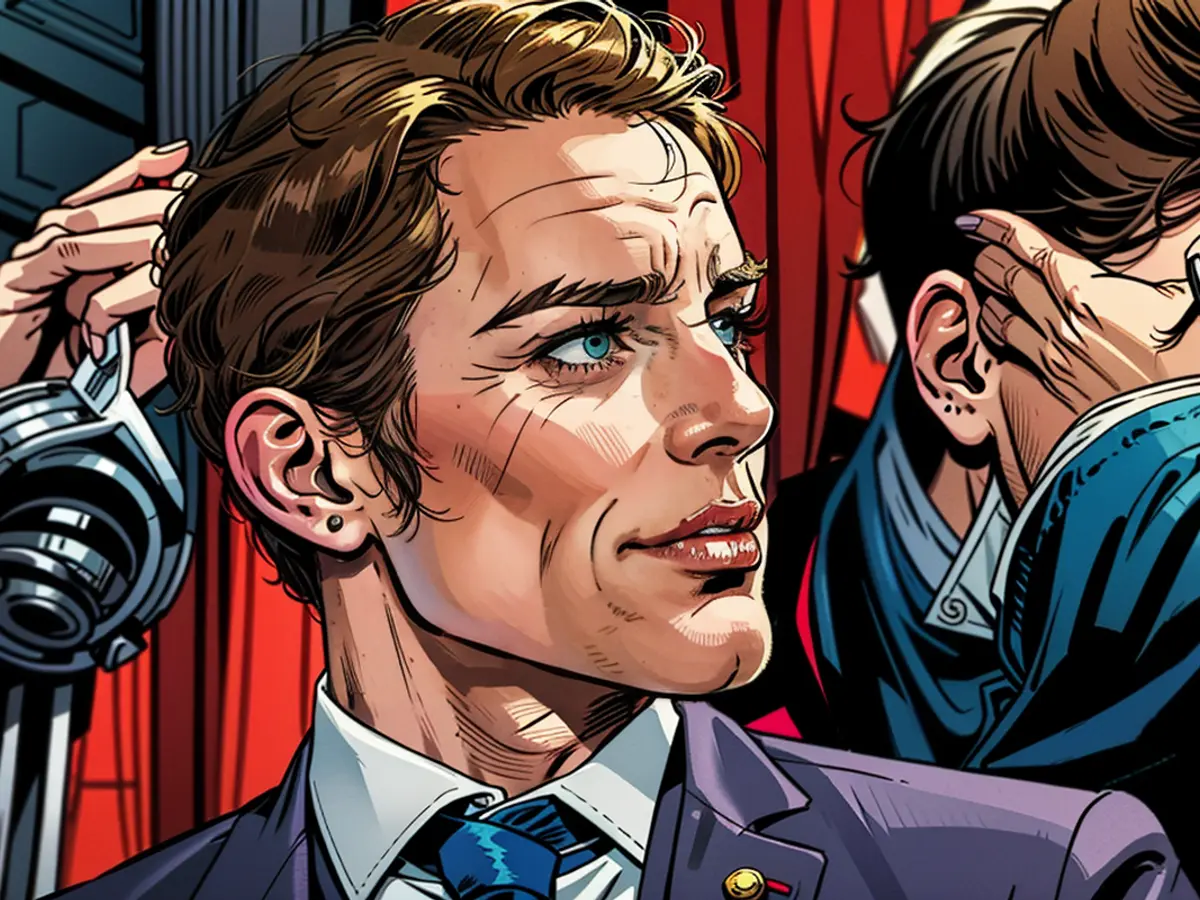France's Macron takes a major risk and confronts the far-right movement.
Sunday saw French President Emmanuel Macron's party fall to second place in the European Parliament elections, with the two main far-right parties taking nearly 40% of the votes combined.
After his victory in the European polls, Jordan Bardella, leader of the National Rally party, urged Macron for a dissolution of the French national parliament. During his speech to supporters, he asserted, "The President of the Republic cannot remain deaf to the message sent by the French this evening."
Macron didn't succumb to Bardella's bluff. Instead, he announced a snap national election for the end of June, setting up a confrontation between Macron's support for Europe, his centrist ideals, and his pro-Ukrainian stance, and the far right's anti-immigration, populist, and hard-line law-and-order rhetoric.
In a nationwide address, Macron stated, "The extreme right is not just the impoverishment of the French but also the downgrading of our country. So at the end of this day, I cannot act as if nothing had happened."
Macron aims to rally both the right and the left, calling upon them to unite against the far right, but their response is uncertain. There's little incentive for the left, having faced years of futile resistance to Macron's pro-business policies and marred by internal divisions over the conflict in Gaza.
While the last time a French president dissolved the National Assembly was in 1997, Chirac lost his majority and the left came into power. French Foreign Minister Stephane Sejourne noted that Macron's Renaissance party is open to the possibility of not fielding candidates against potential allies in other parties. In an interview, he stated, "We're open to speaking with reasonable people with whom we can work."
The far-left French party France Unbowed seems unwilling to join forces. Manon Aubry, leader of the LFI's European list, said, "It's now clear that the country wants to move on from the Macron era."
Despite Macron's dominating 2017 second-round victory over far-right presidential candidate Marine Le Pen, his anniversary election and his party's absence of a majority in parliament pose challenges. With economically challenging times, Macron's unpopular pension reforms, and the hard-line stance of the far right, it's bound to be a tough race.
Since the parliamentary elections at the start of his second term in 2022, Macron has been governing without an absolute majority, forcing him to resort to article 49.3 of the constitution to pass legislation. This has further intensified the controversy and division in France, especially concerning his decision to increase the pension age to 64.
Bardella and Le Pen's National Rally party currently holds 88 seats, while Macron's bloc has 250, making the upcoming election far from a two-horse race. In a parliament with 577 seats, the far-right's anti-immigration stance has gained momentum on the European stage where European Union lawmakers have struggled to curb illegal immigration.
Yet, this election will be a duel between Macron and Le Pen, with the French finance minister admitting his party's responsibility for the results and declaring, "This will be project against project: National Rally against ours."
Macron's confidence in the French people, encapsulated by the snap national election, will present a "bet of confidence" in France's ability to resist extremist politics. France's electoral system favors Macron, as in the first round of voting, a range of parties fight for the required percentage of votes. In the second round on July 7, only the highest-polling candidates in each seat will enter a run-off if no one gains an absolute majority. This provides an opportunity for voters with differing ideologies to hinder a far-right candidate from winning.
This same mechanism is in place for the presidential election, consequently preventing a far-right leader from winning the Elysee Palace thus far. However, on a smaller scale, it may prove less secure.
In the end, the June 30th and July 7th elections will decide how Macron uses his remaining three years in office.

What's Next?
One thing is for sure: Macron, with a presidential mandate until 2027, will stay in power no matter what happens.
If his risk pays off and he wins back a majority in parliament, he'll be able to implement reforms freely. Changes to end-of-life care and the education system are on his agenda. This would give him valuable time and a clear mandate for his plans at home and on the international stage. Macron himself said, "It's a time for necessary clarification."
There's a possibility of a weakened presidency, though.
If his block, with 250 of the 577 MPs in the National Assembly, doesn't reach the 289-seat majority but remains the largest, his government will once again fight legislative battles with one hand tied behind its back.
But his worst fear could come true: if the far-right movement mirrors its European success on the national stage, he may have to appoint a prime minister from their ranks, possibly the 28-year-old Bardella, current president of the National Rally.
In this scenario, Macron would handle international and defense issues, while Bardella would lead the domestic agenda.
Le Pen, the party's figurehead, would most likely wait in the wings to challenge the 2027 presidential election against Macron's successor. The constitution prohibits him from running for a third term.
After her Sunday night victory speech, Le Pen declared, "We're ready to govern."
In a nation becoming more divided by populist discourse, Yaël Braun-Pivet, speaker of France's National Assembly, sounded like a voice in the wilderness on Monday morning as she called for more cross-party collaboration.
"In France, we can't seem to get beyond partisan feuds," she said in an interview with broadcaster France 2.
Macron's reputation has been built on bold political moves.
Failing to halt the far-right now could leave his legacy as the leader who allowed the far right to take power.

Read also:
Despite the far-right gaining momentum in Europe, Macron emphasized France's commitment to upholding its values on the world stage, stating, "We will not allow extreme right-wing ideologies to undermine our European partnerships."
The aftermath of the European Parliament elections has sparked debates across Europe about the growing influence of far-right parties, with France serving as a major case study.







